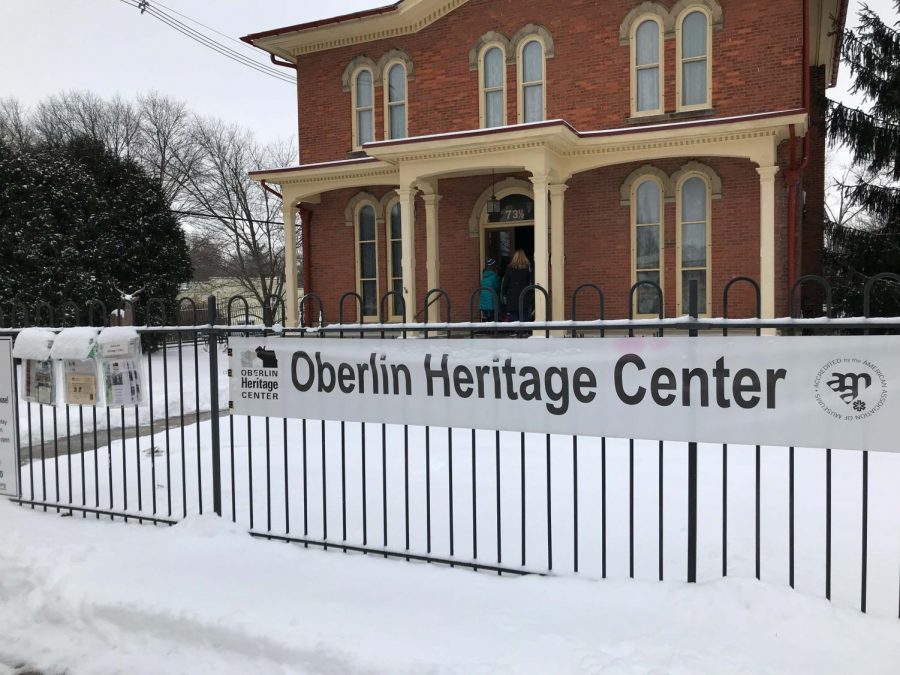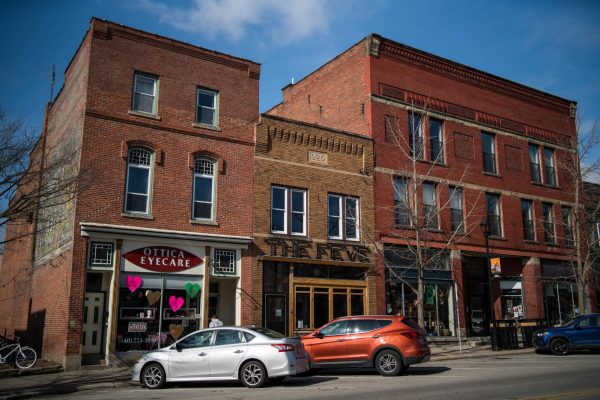OHC Celebrates Black History Month
Oberlin Heritage Center, which is currently preparing a program to celebrate Black History Month by featuring a history of Black business owners in Oberlin.
In recognition of Black History Month, the Oberlin Heritage Center’s Museum Education and Tour Coordinator, Amanda Manahan, will present an illustrated program about the history of Oberlin’s Black business owners this weekend.
According to Manahan, the program will highlight between 16 and 20 people, their accomplishments and struggles, and their continuing legacies in town. Black entrepreneurs have had a presence in Oberlin since the mid-19th century.
John Watson, for example, was a formerly enslaved man who moved to Oberlin around 1840 with his family, and his businesses helped with the construction of the downtown area. He was also one of the individuals arrested in the Oberlin-Wellington Slave Rescue, where a band of Oberlin residents stormed Wellington, Ohio, to rescue John Price, an escaped slave who had been captured and transported there so he could be sent back to his slaveholder in Kentucky. After the Civil War, he presided at a Columbus Convention of Black Men.
Marie DeFrance, another figure who the program will feature, owned a hat making shop and was the only Black woman at the time to maintain a business in Oberlin. More recently, Gigi’s Barber Shop was owned by Geneva “Gigi” Jones, another local business owner and a female barber in town. She graduated with honors from Western Kentucky Barber College, and was the only woman among 30 other male students. Jones passed away last year. Other businesses covered by the program include Carter Nursing Home, Gayters’ Skating Rink, Mason’s Tea Room, Parker’s Grocery, and Pettiford Bakery.
The program will cover both historical community members as well as more recent stories, as Manahan hopes that attendees will also share their own memories of Black entrepreneurs in Oberlin.
“I want people to come and share, rather than simply listen,” she said.
Manahan added that that she presented an abbreviated version of the program at the Allen Memorial Art Museum last year, which sparked a conversation that prompted her to revisit it in time for this Black History Month.
In explaining why she decided to focus on business owners, Manahan said that business owners are not only relatively easy to track, and that they are a fixture 0of the community with shared memories and nostalgia, but also that these narratives must also address Oberlin’s history of segregation.
“Oberlin wasn’t a utopian community,” Manahan said.
Manahan added that Oberlin’s unique local stories “form a much larger narrative — national, international. If we don’t capture it, we’re not going to be telling a complete story.”
Manahan said that it’s important to preserve the real history and stories of the Oberlin community and to create a dialogue. She believes that for students, learning the town’s history will change, and hopefully increase, the ways they are involved in the community.
The Heritage Center also provides information about Oberlin’s historic ties to the Underground Railroad as well as various walking and driving tours of the town’s local landmarks, which include Westwood Cemetery, the Underground Railroad Monument, and several historic houses owned by Oberlin abolitionists.
The Oberlin Heritage Center’s event is free and open to the public and will be held at the House of Zion Fellowship Center at the Mt. Zion Baptist Church of Oberlin, at 81 Locust Street from 2 to 3:30 p.m. this Sunday.







